After the bitterly disappointing defeat at St Mary’s, our chances of qualifying for Europe next season are now hanging by a thread.

The defeat, coupled with rivals Arsenal and Everton winning their respective fixtures on the same day means even a Europa League place looks difficult now. Sitting five and three points behind and having played a game more.
In the meantime, we are left to wonder how life without Europa League action could affect us next season, if indeed we do miss out. Would it be disastrous? Or could it be beneficial?
Europa League: Just a consolation prize?
Many people argue that the Europa League is nothing more than an unwanted and unnecessary distraction. They argue that it does not have the same prestige as the Champions League and therefore competing in this competition is a complete waste of time.
Of course, it is true that the Champions League is by far more the more prestigious competition and everybody, including ourselves, would choose to compete in this as opposed to the Europa League in an ideal world.
Sadly, we do not live in an ideal world and if we do happen to qualify for the Europa League then I personally believe we should always go out aiming to win it. A trophy is a trophy and trophies boost morale, creating a winning mentality.
Like the Europa League, some people don’t particularly rate the League Cup either but everybody could see the massive boost it gave to our fans when we won it last season so I’m sure we would feel the same if we won the Europa League and this alone, is enough reason to take the competition seriously in my eyes at least. When we look at some of the great sides who have competed in this competition, it would be disrespectful to just dismiss it.
Negatives
[sws_blockquote_endquote align=”right” cite=”” quotestyle=”style02″]”This season, it would have taken us 19 games to win the competition” [/sws_blockquote_endquote]
However, I can understand why people think negatively of the Europa League. Aside from the obvious prestige issue, I personally think there are two other factors which seriously undervalue the competition.
Firstly, there are far too many games. This season, it would have taken us 19 games to win the competition; 2 legs in the 3rd qualifying round, 2 legs in the play-off round, followed by six group games then another 2 legs in the last 32, the last 16, the quarter and semi-finals, followed by the actual final of course. In my opinion, the idea of playing 19 games to win any cup competition is a lot to ask. But the idea of playing 19 games to win Europe’s secondary competition when it would only take us 17 from the 3rd qualifying round of the Champions League is ridiculous.
The other factor that devalues the Europa League is the fact that teams who finish 3rd in the group stage of the Champions League then go on to enter the last 32 of the Europa League, having failed to qualify for the last 16 of the Champions League. So, some teams can struggle through up to 14 games only to find that 8 Champions League rejects then come in and join them in the last 32. This is an absolute insult to every team who participates in the Europa League and something UEFA again, could do with changing.
If UEFA scrapped the group stage, perhaps scrapped the two legged knockout system too and prevented Champions League rejects from entering then the number of games required to win the tournament would reduce significantly. Each game would carry more importance and interest would slowly begin to resurface.
Is the Europa League detrimental to league performances?
As mentioned previously, the Europa League is an extremely long competition and some people would argue that it has a detrimental impact on league performance.
[sws_blockquote_endquote align=”right” cite=”” quotestyle=”style02″]”Spurs’ league results have suffered the most directly after a Europa League game” [/sws_blockquote_endquote]
I decided to compare the performances of Liverpool, Spurs and Newcastle in league games that were preceded by a Thursday night Europa League game, 3 nights earlier to see if there is any evidence which could suggest that participation in the Europa League has damaged their season.
The statistics show that Spurs league results have suffered the most directly after a Europa League game. They have taken 60% of all points on offer so far in the league but taken just 56% of those on offer after a Europa League game, compared to 62% from other games. Spurs (and Manchester City) have the second best away record in the league this season, yet 60% of their away losses have come immediately after a Europa League game. In fact, Spurs have lost 8 games so far this season and half of them have come after a Europa League game. Coincidence? Probably not.
The statistics also show that our results have suffered slightly too. It is worth noting though that 5 of our 10 games after a Europa League game have been against top 6 opposition. Only 2 out of 9 and 2 out of 11 of Spurs’ and Newcastle’s post-Europa fixtures respectively, have been against top 6 opposition. Although our results did suffer in the post-Europa games against teams from the top 6, the Europa League cannot take the entire blame for this trend because we have suffered against top opposition all season.
Surprisingly, Newcastle are the side that have been affected least in the league when perhaps Newcastle should in theory, struggle more. They have performed significantly worse in the league than Liverpool and Spurs in general and they do not boast world class, game changing players such as Luis Suarez or Gareth Bale in their squad. Nevertheless, Newcastle have taken 39% of the points on offer in post-Europa games compared to just 35% in other games.
The margins were generally a lot smaller than I expected so it would be difficult to claim that there is concrete evidence to suggest that the Europa League is detrimental to league performance, particularly when Newcastle are currently proving this theory wrong.
Of course, the statistics don’t tell the whole story though; they don’t account for injuries, suspensions, team selection, loss of form, all of which may well have contributed to a team losing directly after their Europa League game.
Europa League: An opportunity for youth players?
As much as I personally dislike the Europa League format, it does, in its current state, provide an excellent opportunity for young players to get some much needed experience. The fact that there is a 6 game group stage and each additional tie (with the exception of the final) has two legs means that results on the night aren’t always essential. Teams can afford to take more risks, particularly early on in the competition.
Until UEFA changes the format, this is the situation Europa League entrants will face whether they like it or not. There are simply too many games so it is inevitable that the first team squad will benefit from a rest every so often so it makes sense to give the youngsters an opportunity. More often than not, this kind of rare opportunity will boost the youngsters’ morale and they will relish the opportunity to impress. More importantly, the experience could help their development too, both as individuals and as a squad.
However, it is important that the youngsters are given this opportunity at the right time. The manager will always have an eye on upcoming fixtures in the league and might choose to rest his star players if a crucial league fixture is approaching; this is to be expected. But if we are going to make our Europa League participation worthwhile, we have to take it seriously too so giving youngsters a chance during home games may not always be wise.
Is the Europa League an attractive prospect to current players and potential signings?

This brings us back to the Champions League conundrum. Does the Europa League really have the power to persuade star players to stay with the club? Likewise, does it really have the power to persuade a player to sign for us as opposed to signing for a rival?
My initial response would be ‘not really.’ Most players dream of playing in the Champions League not the Europa League and in that sense, the Europa League will always languish in the shadow of the Champions League.
However, when the prospect is given more thought, it could turn out that the Europa League has more persuasive power than we may think. If a team is challenging at the level required to qualify for the Europa League then there is always the hope that the team could go that little bit further and push for Champions League qualification. For instance, current and potential players could feel that the foundations are in place and believe that they themselves could be one of the missing pieces required to make that push. Basically, if there is the potential for progress then there will always be players looking for the opportunity.
Let’s look at Daniel Sturridge, for instance. He had been playing for Chelsea but found his opportunities severely restricted. He could have stayed at Chelsea safe with the knowledge that Chelsea were competing in the Champions League, so he would always have had a faint hope of participating. But he chose to come to Liverpool instead. Sure, he has been ineligible to participate in the Europa League this season but I’m sure he arrived at Liverpool believing he could help us push for the Champions League one day in the future.
While we’re challenging for Europe, there will always be an attraction, even if it’s not quite at the very top level. For this reason, Europa League football is still beneficial in my opinion at least.
Do we benefit financially from the Europa League?
Another advantage of qualifying for the Europa League is the financial benefits it brings. Once again, it may not be as lucrative as the Champions League but it is beneficial nonetheless.
In this year’s tournament, each team who qualified for the group stages received just over £1.1m. Once participating in the group stage, every win was rewarded with just over £171,000 and draws were rewarded with just over £85,000. Then there were £342,000 and £171,000 bonuses for finishing 1st and 2nd in the group respectively. So, our group games against Udinese, Anzhi and Young Boys earned us around £940,000 alone. Then we will have received a further £171,000 for playing in the last 32.
So all in all, our Europa League campaign was worth just over £2.2m. This isn’t counting the money we received from our 3rd qualifying round against Gomel or play-off round against Hearts. Similarly, it doesn’t include additional income such as TV revenue, gate receipts and merchandise sales.
£2.2m doesn’t sound a lot in today’s game but the actual figure with those added in would be much higher, and the winners of last season’s tournament, Atletico Madrid, received over £5m (incl. TV money) – enough to pay a top class player’s wages for a season.
So, would Europa League qualification be beneficial for us?
[sws_blockquote_endquote align=”right” cite=”” quotestyle=”style02″]”qualification would ensure that the club stays exposed on a worldwide scale during these difficult times”[/sws_blockquote_endquote]
Definitely. I fully understand the criticisms of the Europa League and to some degree, I agree with them, i.e. the format, too many games etc. However, it is difficult to prove that it has a detrimental effect on our league season. Even if we qualified for the Champions League, we would still have to deal with a similar amount of extra games and I’m sure few would complain.
Some argue that missing out could be beneficial in that our players will have fewer games and therefore more recuperation time in between games. However, there is nothing to suggest that these factors would actually benefit us. As an article pointed out on the site, some of our most disappointing defeats, for example, West Brom at home, Oldham and Southampton last weekend have come after we’ve had a full week to recuperate. Plus, we failed to qualify for the Europa League in the 2010/11 season and still finished 7th in the league last season. We would have failed to qualify for the Europa League again had it not been for our Carling Cup victory.
For me, the biggest benefits of Europa League qualification would be the financial and attraction factors. The extra income, no matter how small it seems will always help the club in the future. F
Finally, qualification would ensure that the club stays exposed on a worldwide scale during these difficult times. Everybody knows about our history but sadly, we can’t rely on that forever. We need our name to be out there for the world to see if we are to keep our massive reputation and continue to appeal to fans on a global scale, both of which are extremely important to the club.
This is the first in a series of articles this week on the importance of Europa League football.
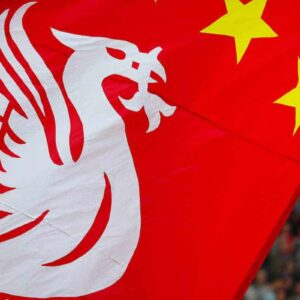









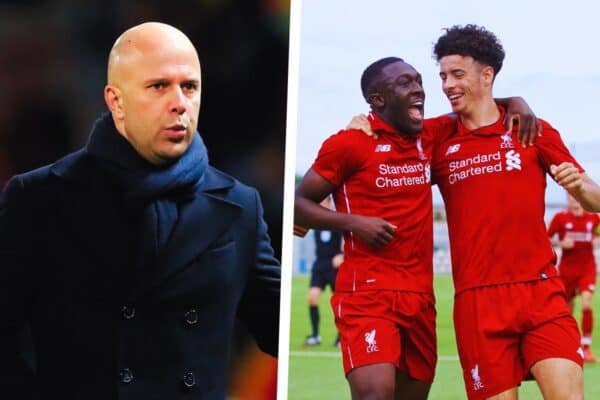
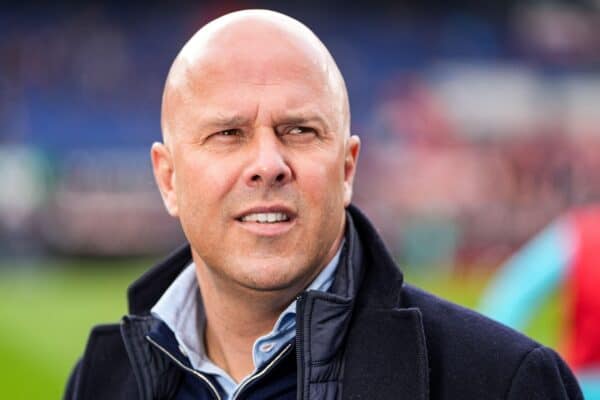
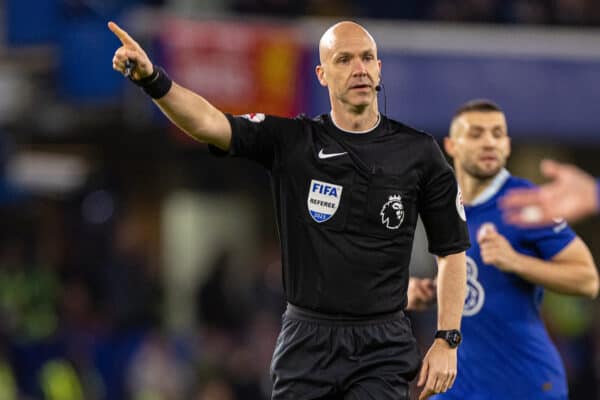



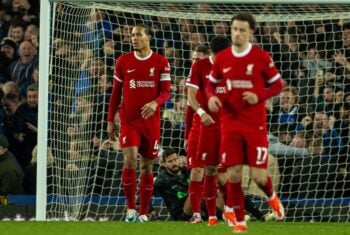
Fan Comments